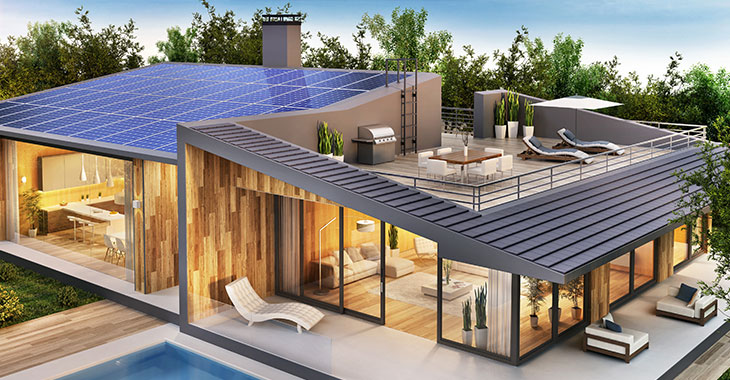Dandong Insights
Explore the vibrant stories and updates from Dandong and beyond.
Energy-Efficient Homes: Where Your Bills Take a Vacation
Discover how energy-efficient homes can slash your bills and boost your savings. Uncover tips to make your bills take a permanent vacation!
Top 5 Energy-Efficient Upgrades for Your Home
Upgrading your home to be more energy-efficient is not only beneficial for the environment but also for your wallet. Here are the top 5 energy-efficient upgrades to consider:
- Insulation: Insulating your home effectively can reduce heating and cooling costs immensely. Look into adding insulation in your attic, walls, and floors to maintain a consistent indoor temperature.
- Energy-Efficient Windows: Replacing old windows with double or triple-pane energy-efficient models can significantly lower energy loss. This not only helps in savings but also improves your home’s comfort.
- Smart Thermostats: Investing in a smart thermostat allows you to monitor and control your home’s temperature remotely, optimizing energy use and maximizing savings.
- LED Lighting: Switching to LED lights uses up to 75% less energy than traditional bulbs and lasts significantly longer, making it a smart choice.
- Energy Star Appliances: When shopping for new appliances, opt for those with the Energy Star label. These appliances meet strict energy efficiency guidelines set by the EPA, ultimately reducing your overall energy bills.

How to Calculate Your Savings with Energy-Efficient Appliances
Calculating your savings with energy-efficient appliances starts with understanding their energy consumption compared to traditional models. Begin by checking the energy ratings on appliances, typically measured in kilowatt-hours (kWh) per year. To estimate your savings, take the difference in energy usage between the energy-efficient model and its standard counterpart, then multiply that figure by your local electricity rate. For example, if an energy-efficient refrigerator uses 300 kWh less per year than a standard one and your energy cost is $0.12 per kWh, your annual savings would be $36.
Additionally, consider the lifespan of your appliances when calculating total savings. If an energy-efficient appliance lasts about 15% longer than a traditional model, you can spread the cost savings over its extended life. Use the following formula: Annual Savings x Lifespan = Total Savings. This way, the refrigerator mentioned earlier, if it lasts 12 years, would lead to total savings of $432 ($36 x 12), making the investment in energy-efficient appliances not only beneficial for your utility bills but also a smart long-term financial decision.
What Are the Benefits of Living in an Energy-Efficient Home?
Living in an energy-efficient home offers a myriad of benefits that go beyond just reducing your carbon footprint. One of the most significant advantages is the reduction in energy bills. Energy-efficient homes are designed to utilize less energy for heating, cooling, and powering appliances, which can lead to substantial savings over time. In fact, homeowners can save up to 30-40% on energy costs compared to traditional homes. Additionally, many energy-efficient features qualify for tax credits and rebates, making them an attractive financial option.
Another critical benefit of residing in an energy-efficient home is improved indoor air quality and comfort. These homes often include advanced insulation, energy-efficient windows, and air circulation systems that work to filter out pollutants and reduce moisture levels. This leads to a healthier living environment, especially for families with allergies or asthma. Moreover, as energy-efficient homes maintain stable temperatures more effectively, residents experience less fluctuation in comfort levels throughout the seasons, resulting in a more pleasant living space.